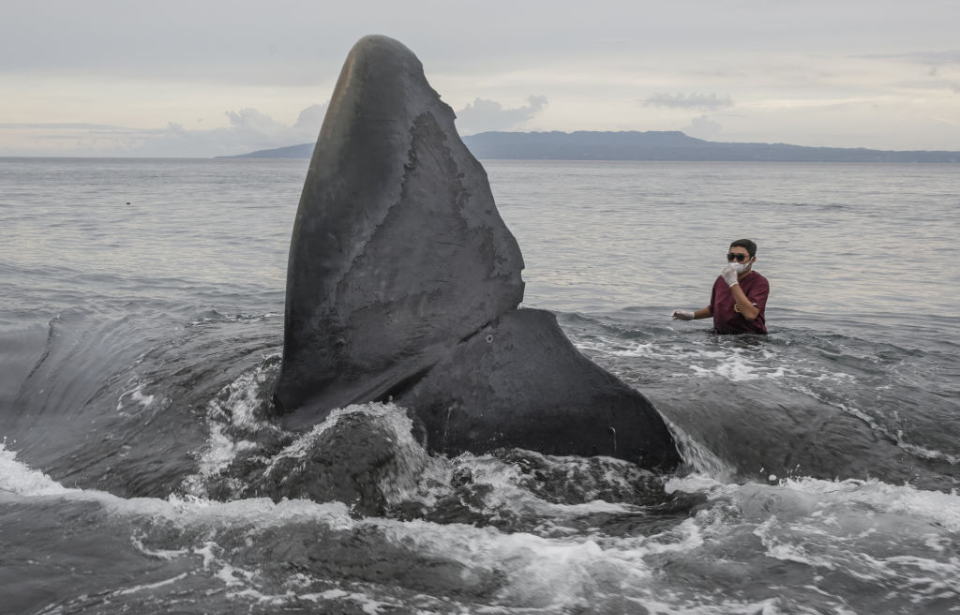The story of discovering valuable treasures in the ocean is nothing we haven’t heard before. From expensive jewelry to ancient artifacts, many people have made pretty pennies off of ocean finds. More recently, however, one professor was added to the list of lucky finders when he stumbled upon some high-end whale vomit.
This past month, a professor was performing an investigation of a dead sperm whale that had washed up on shore when he found what he called “treasure” inside.
<iframe width=”100%” height=”100%” frameborder=”0″ allowfullscreen=”true” src=”https://www.youtube.com/embed/bL07qs93WA0?rel=0″></iframe>
This sperm whale was already dead when it washed up on the La Palma region of the Canary Islands. However, instead of removing the dead marine mammal right away, Antonio Fernandez Rodriguez, the head of the University of Las Palma Institute of Animal Health and Food Security deemed it necessary to perform a necropsy on the whale.
With the constant changing of the tides, his endeavor was not so simple.
The first thing he thought was that humans were somehow involved, though after ruling that possibility out, he decided to investigate whether or not it was a digestive issue. He recounted feeling something hard when he got to a particular part of the intestine.
“The stone that I pulled out weighed more than 9.5kg and was around 60 cm in diameter,” said Rodriguez. “Tons of people were watching, though nobody knew that what I was holding in my hand was whale vomit, better known to the luxury community as ambergris.”
Ambergris is a material formed in the digestive system of whales, and is one of the most rare and high value substances on Earth. This unique form of whale vomit is produced when whales eat objects, such as squid beaks, that they aren’t able to expel, causing irritation in the digestive tract.
Though the name might not do it justice, many people describe the aroma of this whale vomit as sweet, earthy, and musky, which is one of the reasons why it’s so often used in fragrances.
Many people believe that ambergris has significant health benefits too, and it has been used numerous times to treat people with heart conditions, epilepsy, and chronic headaches. It has been given the nickname “floating gold,” due to its high value and rarity. In fact, only around 1% of sperm whales are able to secrete ambergris, and the number of whales in that small percentage is decreasing every day.
Ambergris is often discovered on accident these days, thanks to strict whale protection regulations. Rodriguez, who happened to be one of those lucky finders, said that he believes this ambergris is what killed the whale.
He noted that many times, whales are able to expel this fragrant substance by throwing up, though other times, it grows too big and starts causing a myriad of problems.
Experts estimate that the ambergris found by Rodriguez is worth well over $500,000, and he is currently looking for a buyer.






























